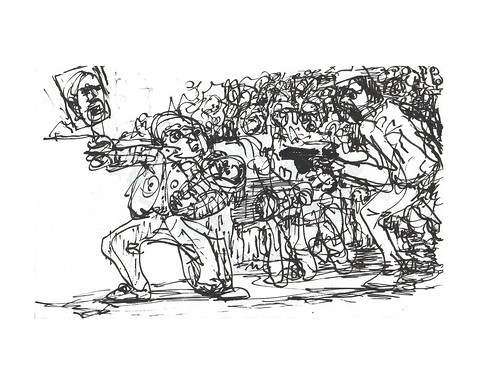garboil / garboyle /GA(R)-boil/. noun. A tumult; a confusion; a commotion; an uproar; a hubbub; a hurlyburly. From Old Italian garbuglio (a tangle, a mess) < possibly from Latin bullīre (to boil).
“Far from the moiling crowd and garboyle of the world.” (The National Review)
“Yet others have disappeared, snatched from their places of refuge, to vanish into the prisons of the Exfernal Powers, denied trial, forbidden even to know the names of their accusers. Their minds may already have been destroyed by drugs and torture, their bodies melted into garboil.” (Margaret Atwood)
“…the most terrifying din and the principal uproar arises from the anguished howls of the devils, who, lying in wait in that confused garboil, receive chance blows from swords and suffer ruptures in the continuity of their substances, which are both aerial and invisible.” (Francois Rabelais)
“Then in ’82 there had been the Egyptian garboil I mentioned a moment ago; Joe Wolseley had asked for me point-blank, and with the press applauding and the Queen approving and Elspeth bursting into tears as I rogered her farewell, what the blazes could I do but fall in?” (George MacDonald Fraser)
“‘You have been grievously in error this day, sir. You have handed the throne of England to a malodorous Scotch garboil—or perchance a simpering Spaniard.’” (Rory Clements)
“…all Greece stood in marvellous garboil at that time, and the Athenians especially in great danger.” (Sir Thomas North)
“So much uncurbable, her garboils, Caesar,
Made out of her impatience…”
(William Shakespeare)
“Now manhod and garbroyls I chaunt…” (Richard Stanyhurst)




